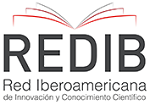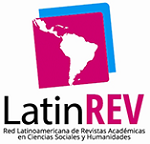Virtual teaching strategy for teaching mathematics in times of pandemic
DOI:
https://doi.org/10.15649/2346030X.2564Keywords:
virtual didactic strategy, teaching and learning of mathematics in a pandemicAbstract
The objective was to analyze the virtual didactic strategies used by teachers in the area of secondary basic education mathematics within the Alirio Vergel Pacheco Educational Institution as an alternative for teaching and learning in times of pandemic. It was a qualitative, descriptive study, which included the participation of 8 informants (3 teachers and 5 students). The instrument was the semi-structured interview and the student perception survey. In conclusion, reference is made to the fact that students assume that their mathematics teachers almost never incorporate technological tools, a reality within the pedagogical practice where the teachers themselves recognize that few professionals in the area have consolidated technological skills. In the Sardinata municipality there is a deficiency of connectivity, internet signal and the provision of technological equipment. For these reasons, it is worth proposing virtual didactic strategies through a proposal that allows qualifying the realities, needs and interests; and with this, respond to the teaching and learning process at the basic secondary level, aware of the notable shortcomings in technological skills of their teachers, which is opposed to the innovative skills that their own students possess and that must be used in the best possible way. possible way.
References
Aguilar y otros, “Educación y Pandemia, una visión Académica”, Instituto de investigaciones sobre la universidad y la educación, Universidad Nacional Autónoma de México, Ciudad de México, 2020.
P. Ríos, “La aventura de aprender”, Caracas: Cognitu,. 2014.
Barriga, “Estrategias docentes para un aprendizaje significativo una Interpretación constructivista”, Editorial McGraw-Hill Interamericana Editores, S. A. de C. V., México, 2002, 2006.
A. Mora, “Matemática”, Ediciones Planeta, Colombia, 2014.
Rodríguez, Gil y García, “Metodología de la investigación cualitativa”, Málaga: Ediciones Aljibe, 1999.
E.B. Betalleluz, “La educación virtual y la satisfacción del estudiante en los cursos virtuales del Instituto Nacional Materno Perinatal 2017”, Perú: Universidad Cesar Vallejo, 2018.
J. Hurtado, “El proyecto de investigación. Una comprensión holística”, (3ra. Ed.), Cooperativa Editorial Magisterio, Bogotá, 2002.
S. Hernández, “Metodología de la Investigación”, (5ta Edición), México DF: McGraw-Hill, 2010.
F. Cisterna, “Categorización y Triangulación: como procesos de Validación del Conocimiento en Investigación Cualitativa”, Revista Educativa; Vol. 14, Departamento de Ciencias de la Educación, Facultad de Educación y Humanidades, Universidad Bío-Bío, Chillán; Chile, 2005.
Raposo, Fuentes y M. González, “Desarrollo de Competencias Tecnológicas en la formación inicial de los maestro”, Revista Latinoamericana de Tecnología Educativa, 5, 2006.
García y González, “Integración de las TIC en la práctica escolar y selección de recursos en dos áreas clave: Lengua y Matemáticas”, Localización: La práctica educativa en la sociedad de la información, 2011. Innovación a través de la investigación [en línea] [fecha de consulta 20 de marzo de 2015]. Disponible en: http://www.edutic.ua.es/wp-contet/uploads/2012/06/la-practica-educativa_129- 144-CAP12.pdf [Consulta: 2021, Octubre 04].
M. García, “Evolución de actitudes y competencias matemáticas en estudiantes de secundaria al introducir geogebra en el aula”, (Tesis de maestría), Universidad de Almería; España, 2011.
Published
How to Cite
Issue
Section
Altmetrics
Downloads
License
The journal offers open access under a Creative Commons Attibution License

This work is under license Creative Commons Attribution (CC BY 4.0).












